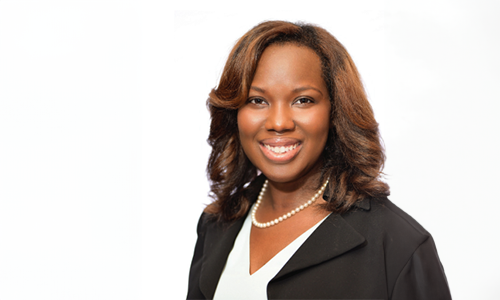 For auditors, successfully detecting financial fraud requires a number of key ingredients
including a healthy dose of professional skepticism, the freedom to hold candid discussions,
and the use of high-quality audit practices, according to Harbert researcher Greg
Jenkins.
For auditors, successfully detecting financial fraud requires a number of key ingredients
including a healthy dose of professional skepticism, the freedom to hold candid discussions,
and the use of high-quality audit practices, according to Harbert researcher Greg
Jenkins.
The Ingwersen Professor of Accounting was among five faculty members nationwide tapped
by the American Institute of Certified Public Accountants’ Auditing Standards Board
to synthesize contemporary research studies related to fraud risks and to communicate
revealed best practices. They shared their practice-related findings in the Journal
of Accountancy.
“Auditors are required to maintain their professional skepticism throughout an audit,” Jenkins said.
“Professional skepticism calls on auditors to remain alert during their work for information
that suggests the financial statements may contain misstatements and to recognize
that things — such as a client’s explanations for a transaction — may not be as they
appear.”
Among their recommendations is to support auditors who spend additional time pursuing
potential discrepancies even though the additional work does not lead to the discovery
of a misstatement.
Such work should be rewarded with positive feedback, the paper stated, and audit team
leadership should “avoid penalizing staff (e.g., through a poor performance review)
who respond skeptically to evidence inconsistencies when no misstatement is identified.”
Another need, the team said, is open and candid discussion within the audit team.
Audit team leadership should support this by setting the right tone of candor within
the team.
“Engagement partners should demonstrate their own professional skepticism to other
team members by, for example, sharing their own past fraud experiences,” Jenkins said.
“This encourages preparation for fraud brainstorming meetings and deeper discussions
during those meetings. When engagement partners demonstrate their professional skepticism,
brainstorming sessions are longer, have better attendance, and include more extensive
discussions.”
Another suggestion is for auditors to conduct potentially sensitive interviews in
the afternoon.
“Client personnel are more likely to report fraudulent activities when auditors remind
them of applicable whistleblower protections and during late-in-the-day interviews,
when interviewees are tired and prone to letting their guard down,” said Jenkins.
The team also warns auditors to be aware of relationships between audit committee
members and client management because close relationships may hinder the effectiveness
of the audit committee’s oversight.
Jonathan Stanley, acting director of the School of Accountancy, praised Jenkins’ work
and its importance to the accountancy field.
“Fraudulent financial reporting is a fundamental and longstanding concern of audit
professionals who work to protect the interest of client stakeholders, including investors
and creditors,” Stanley said. “As accounting academics, one of our primary goals is
to produce research that not only advances the academy but also shapes practice.”
Jenkins’ co-authors were Joseph Brazel of North Carolina State, Tina Carpenter of
the University of Georgia, Christine Gimbar of DePaul, and Keith Jones of the University of Kansas.

 Degrees & Programs
Degrees & Programs
 Faculty & Staff
Faculty & Staff
 Career Development
Career Development
 Recruiters & Industry
Recruiters & Industry
 For auditors, successfully detecting financial fraud requires a number of key ingredients
including a healthy dose of professional skepticism, the freedom to hold candid discussions,
and the use of high-quality audit practices, according to Harbert researcher Greg
Jenkins.
For auditors, successfully detecting financial fraud requires a number of key ingredients
including a healthy dose of professional skepticism, the freedom to hold candid discussions,
and the use of high-quality audit practices, according to Harbert researcher Greg
Jenkins.

